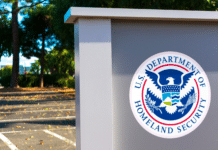ST. PAUL, Minn. – A recent bill passed by Rep. John Petersburg (R-Waseca) aims to protect a growing group of identity theft victims, children.
The bill came in response to constituents who had experienced the child identity theft first-hand and felt it was necessary to do something on this issue. One constituent in particular was especially active in the process and looked to legislation passed by other states in making recommendations to Petersburg throughout the crafting of the bill.
Minnesota is a late adopter of this policy as 24 other states have already adopted similar legislation, including Wisconsin, which passed Assembly Bill 248 in 2013.
Petersburg told Alpha News that the constituent in question, “played an integral part in the writing and research behind the bill.”
One of the reports consulted during the crafting of the bill, produced by the Carnegie Mellon Institute, showed that 10.2 percent of the children surveyed in the report had someone else using their Social Security Number (SSN). This rate is 51 times higher than the adult rate of identity theft.
Once a child’s identity is stolen, the perpetrator is able to engage in a variety of criminal activities with the information. This includes acquiring false identification for employment, skirting around utility bills, or opening new credit accounts. The report indicates that this problem could have major implications for affected children long term; including “approval of student loans, ability to acquire a phone, obtain a job or secure a place to live.”
“We want to continually protect our children and their credit, because [bad credit] has long-reaching issues into the future,” Petersburg told KSTP.
The bill, H.F. 1243, would allow anyone who has guardianship or legal authority over a minor under 16 to file for a credit freeze with the three credit reporting bureaus.
“This is certainly something we should give parents the ability to do if they so choose,” Petersburg told KSTP.
While Petersburg was enthusiastic about the legal protections that the bill would provide, he cautioned that current legislation was limited to “protect identity in the case of credit and not other possibilities of fraud.”
Unfortunately, the bill was not heard by the Senate, in part due to health troubles by a member of the Minnesota Senate who was supposed to introduce the bill. This, in addition to the fact the type of law it deals with, means it cannot fit into an omnibus bill. As a result, the bill will not be able to pass until next year and will not go into effect until much later. However, Petersburg continues to be optimistic, stating that the bill was widely praised by all members of the Minnesota House.
The Carnegie Mellon report identifies illegal immigration as one of the primary drivers of identity theft, as it provides a way for illegal immigrants to work through the use of false identification. According to the report, “many commercial and public sector entities do not treat Social Security numbers as unique identifiers.” This allows for a single SSN to be used by multiple people. The SSNs of minors are also valuable to identity thieves as it is difficult for employers to check what name and birthday is officially attached to the SSN, making it easy to attach a different name or fake name to the SSN account.
Use by friends and family trying to circumvent bad credit rating, and use by organized crime for the purpose of financial fraud, were among the other primary reasons for identity theft against children. This included such actions as opening a utility bill and credit card under a stolen SSN. In some cases, the creditors are allowed to speak to children to determine the identity of the child, which obviously causes many legal complications.


















